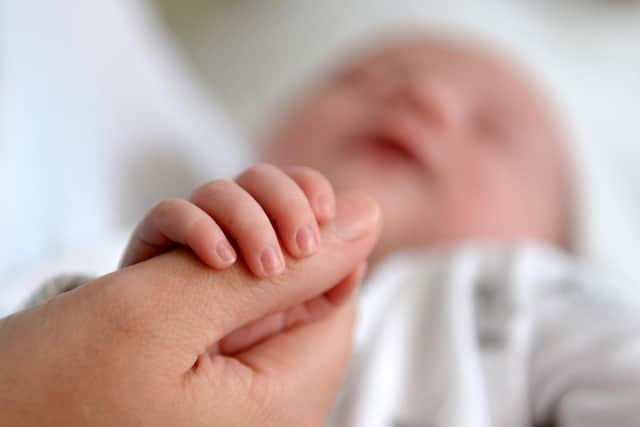Roe v Wade abortion ruling could cut potential parents off from IVF - Antonio Marsocci
This ruling supports the idea that ‘‘personhood’’ begins at the moment of conception. In response to this, 13 states immediately introduced ‘‘trigger laws’’, leading to instantaneous state-wide bans on abortion. Meanwhile, further states began debating access to various forms of contraception, including emergency contraception, also known as ‘‘Plan B’’, and intrauterine devices (IEDs).
Not only has this ruling had a significant impact on natural pregnancies, no matter how they come to pass, the overturning has also proven to impact the certainty and accessibility of IVF.
Advertisement
Hide AdAdvertisement
Hide AdWhy? During IVF, multiple eggs are fertilised to select the strongest embryo for transfer; those not deemed suitable are discarded or destroyed, which under re-introduced laws could be viewed in the same light as abortion. The US, which was once a centre point for surrogacy services, now incites feelings of anxiety and concern among those looking to welcome children through this process.


I’m the founder of Think Positive! Surrogacy, an organisation which supports LGBTQ+ couples through every stage of their journeys to parenthood. As an IVF and surrogacy expert, I’m now delving into exactly how this overturning could impact intending parents and what the future may look like for couples and singles looking to welcome a child through IVF.
IVF is the most commonly used form of assisted reproductive technology, allowing individuals and couples to have a biological child of their own where, in standard circumstances, they would be unable to. This is particularly popular among LGBTQ+ people and individuals suffering from infertility or genetic diseases. Typically, the process involves injecting a woman with hormones to accelerate their production of eggs, which are then extracted, combined with sperm, and fertilised to form embryos. This can either be the biological mother, an egg donor, or a surrogate. These embryos are subsequently tested for various abnormalities, such as genetic diseases, and the most promising are transferred into the uterus of a surrogate mother or frozen for later use.
In relation to Roe v Wade’s overturning, a concerning issue arises when considering embryos that do test positive for various abnormalities, or do not ‘‘take’’ correctly. For those US states enforcing a ban on all forms of abortion, and those looking to do so in the near future, life begins at the point of fertilisation; during the traditional IVF process, this occurs before any aforementioned abnormalities are discovered. Therefore, the destruction of such embryos under these circumstances could be considered illegal, putting the entire IVF industry at risk. This may require fertility doctors to transfer all fertilised embryos into a surrogate without genetic testing, posing a risk to the health of any subsequent child and the wellbeing of the surrogate, should multiple embryos ‘‘take’’ in one cycle.
Advertisement
Hide AdAdvertisement
Hide AdMore states are looking to impose either a ban or severe restrictions and some states are threatening the legality of abortion. While this is concerning, abortion remains entirely legal in 20 states, and efforts to criminalise abortion have been blocked in others. As such, IVF will not be under threat across the whole of America.
However, this means that intending families may be forced to travel hundreds, if not thousands of miles in the hope of locating a fertility clinic. This will of course impose significant financial costs on hopeful parents, which for many, would make IVF unattainable.
Prior to the overruling of Roe v. Wade, the average cost of one IVF cycle within the US ranged from a minimum of $12,000 USD to as much as $25,000 USD. Now, considering the state-wide criminalisation of embryo destruction in nearly half of US States, additional costs for repeat travel to clinics will likely add to this substantially.
Ultimately, the overturning of Roe v. Wade has shaken the world and for intending parents in the US, it has sparked major concern. Time will eventually highlight how the ruling will impact IVF processes, however in the meantime I believe that surrogacy rates in the US will decline rapidly, with international alternatives proving to be a saving grace among heterosexual and LGBTQ+ intending parents.
- Antonio Marsocci is Founder of Think Positive! Surrogacy.